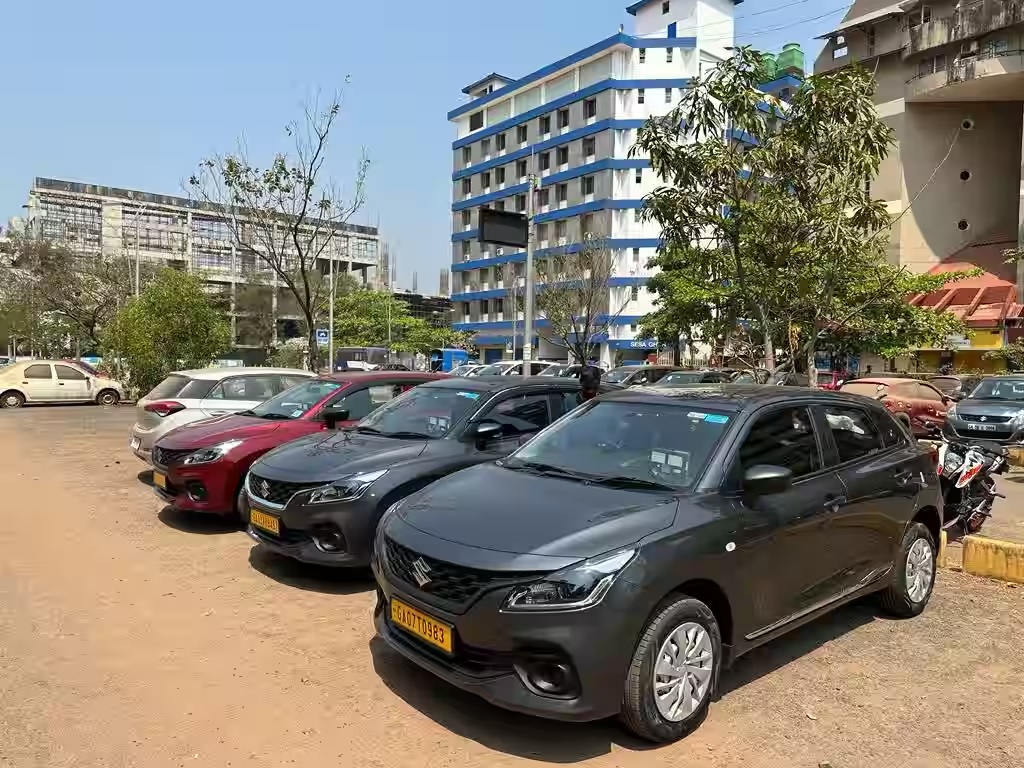Owners stress that drivers should be liable for accidents

Goa has been witnessing a public outcry over the sharp rise in accidents, with the recent one at Mandovi bridge involving a rent-a-cab where the focus shifted to tourists engaging in rash and reckless driving. The Directorate of Transport in Goa promptly responded this time with a circular making the installation of 'speed governors' mandatory in transport vehicles, with a specific focus on rent-a-cars.
The circular, directed by Director Pravimal Abhishek, instructs Assistant Directors of Transport (ADTs) to conduct thorough inspections of these vehicles, with special attention given to 'Rent-a-Cabs,' to ensure the proper installation and functionality of these devices. The directive emphasizes that speed governors must be operational during the renewal or issuance of fitness certificates for the vehicles.
The Directorate of Transport has set a deadline for the action taken report, requiring it to be submitted by March 11, 2024, and subsequently reviewed the following day.
As of February 22, Goa has witnessed 450 road accidents, leading to 50 fatalities, a concerning spike within just four days.
The Goan spoke to rent-a-cab owners in the north coastal belt to know their business model, the issues they face and whether speed governors would hit their operations.
Adherence to SOPs:
Education and verification
When questioned about adhering to Standard Operating Procedures (SOPs), a rent-a-cab owner stated, "It is very obvious, and the driver knows all the rules. However, when we give the car on rent, we make sure to educate the driver about the vehicle and what has to be done. We tell them about not drinking and driving, wearing seatbelts, and following all the rules." Additionally, rent-a-cab owners collect a government-recognized ID proof as part of their documentation, ensuring verification for security.
Speed governors
Addressing the requirement for speed governors in commercial vehicles, the rent-a-cab owners acknowledged the necessity but raised concerns about the installation process. "All commercial vehicles must have a speed governor. However, in many cases, the speed governors, when installed, have faulty issues, which pose problems for the vehicle," expressed one owner. The owners highlighted that speed governors are typically installed by third parties, impacting insurance claims. They urged that manufacturers incorporate speed governors during the vehicle production to avoid modification-related insurance hurdles.
Accidents and accountability
In the event of accidents, rent-a-cab owners emphasized that the driver, not the owner, should be held accountable. "In accident cases, usually, the person who has rented the vehicle pays for the damage. But if it involves a harsh accident, it's different. The driver who has rented the vehicle takes all the responsibility," clarified a rent-a-cab owner.
Challans and fines:
Post-rental predicament
Rent-a-cab services often face challenges related to challans and fines. Owners explained, "In many cases, a rent-a-car is given on rent for a maximum of four or five days, especially to tourists. Sometimes, challans are issued where the person who has taken the car goes out of the state, making it challenging to collect fines. Owners may end up paying fines later on behalf of the driver."
Post-rental vehicle condition
and cleanliness issues
Owners lamented the state in which vehicles are returned post-rental. "When we give the car, it is neat and tidy, but we usually get the car back in a bad state. Sometimes, passengers engage in drinking in the car, leaving waste behind," shared one owner. This concern reflects the need for better awareness and responsibility among those availing rent-a-cab services.
Costing of vehicles and
business dynamics
Costing is a crucial aspect of the rent-a-cab business. The rates for hatchback cars range from Rs1,200 to Rs1,500 per day, sedans cost Rs1,500 to Rs 2,000 per day, and larger vehicles like 6-seaters may range from Rs 2,500 to Rs 4,000 per day. These pricing structures reflect the diverse needs and preferences of the customers and contribute to the economic viability of the rent-a-cab services.
In conclusion, the challenges faced by rent-a-cab owners in Goa highlight the need for a collaborative approach between stakeholders, including regulatory bodies, manufacturers, and customers. Addressing concerns related to safety, vehicle conditions, and accountability can contribute to the sustainable growth of the rent-a-cab industry in this popular tourist destination.
Rent-a-cab owners demands
Rent-a-cab owners from the coastal region of Goa are voicing strong demands for enhanced regulations, improved infrastructure, and transparency within the police and transport departments. Concerns have been raised regarding the renting of private high and large vehicles, urging the government to enforce stricter measures.
Rent-a-cab owners emphasized the need for the government to impose strict regulations on private vehicles offered for rent, particularly focusing on larger and high-capacity vehicles. "The government should be very strict against private vehicles that are being given on rent, especially high and big vehicles in Goa," insisted one owner. This plea aligns with the quest for standardized regulations to ensure the safety and compliance of all vehicles available for rent.
The demand for better infrastructure, particularly in terms of roads and safety measures, emerged as a key concern. Rent-a-cab owners highlighted the importance of well-maintained roads and safety protocols for the overall success and safety of their businesses.
The rent-a-cab owners alleged reservations about corruption within the police and transport departments, calling for increased transparency and accountability. "There are eyebrows raised with regards to corruption within the police and transport department," stated one owner. This concern underscores the need for a fair and corruption-free regulatory environment, ensuring a level playing field for all operators in the rent-a-cab industry.